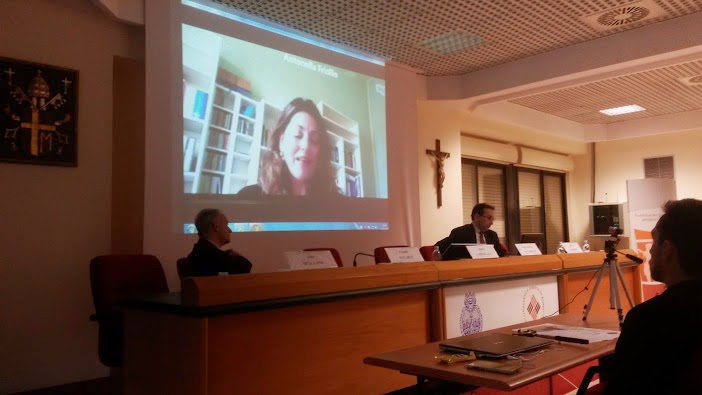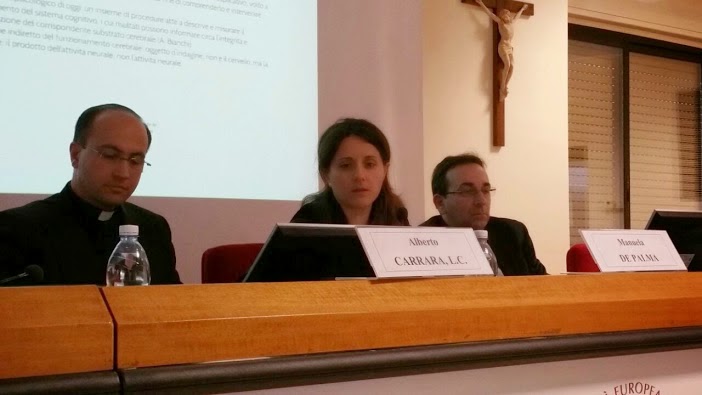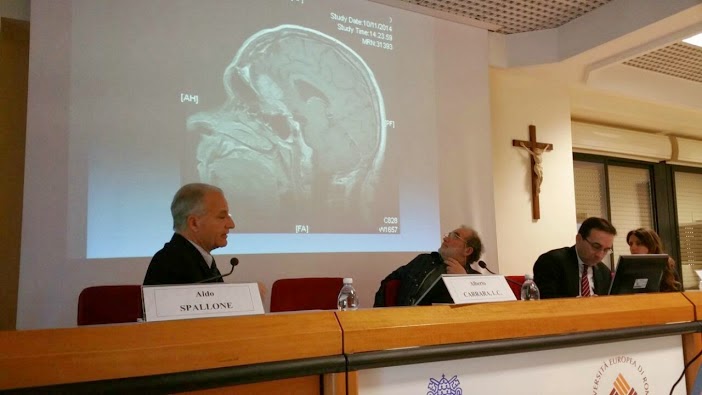As part of the World Week of the Brain, a preview of the Brain Awareness Week 2015 sponsored by the Dana Foundation, was held March 12, 2005 in the University Regina Apostolorum in Rome dedicated to the question “Can neuroscience in the courtroom help us understand the complexity of human behavior?”
Can our personality change as a result of a brain tumor? If so, how drastically? What role does our brain play in our ability to understand and will? Various experts explored these questions throughout the day of interdisciplinary reflection.

The event began with an introduction from the Rector of the European University of Rome, Prof. Luca Maria Galicia, and the introduction from lawyer and Director of the UNESCO Chair in Bioethics and Human Rights of Roma, Prof. Alberto García.
In the intervention “Neurosurgery between brain and personality,” Prof. Aldo Spallone, neurosurgeon and director of the Neurological Center of Latium Rome explained a clinical case that caused a profound transformation of personality and social experience.
Neuropsychological assessment, if used properly, can be a valuable tool in diagnostic of the patient. Dr. Alberto Passerini, psychiatrist and president of SISPI (Milan – Rome), in his speech entitled “An interdict is one who does not understand anything,” explored the dignity of the person in forensic psychiatric evaluations. Dr. Manuela De Palma, psychologist and psychotherapist of SISPI (Milan – Rome) discussed the use of neuropsychological assessment and clinical findings in the legal field. The two specialists presented and discussed a recent court case of alleged disqualification of an elderly 84 year old suffering from neurodegenerative disease. The Italian judge, Dr. Antonella Frizilio spoke on two Italian court cases which mark the first time in Italy that genetics and neuroscience have entered the courtroom.

Neuroscience and psychiatry do not only affect the Italian criminal law; they also benefit ecclesiastical law, especially in the context of delicate judgments of matrimonial nullity. A judge of the Roman Rota, Msgr. John Vaccarotto, spoke on the relation between Canon Law and contemporary neuroscience.
The Roman afternoon on Neurolaw ended with philosophical reflection on personal responsibility in the legal field by Prof. Claudia Navarini moral philosopher and Associate Professor at the Faculty of Psychology of the European University of Rome and with a reflection on Neurobioethics from Prof Alberto Carrara, Fellow of the UNESCO Chair in Roma.

